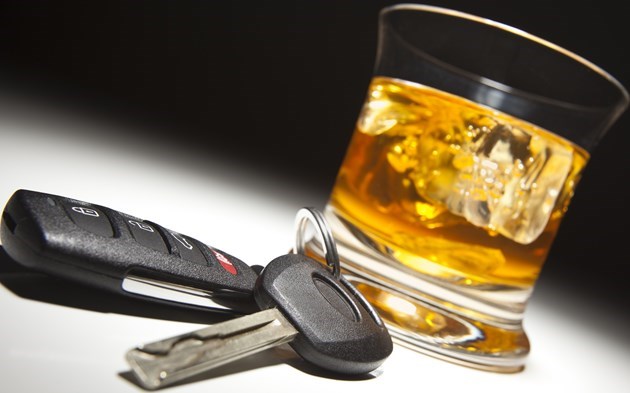For the second time in recent months, a Sudbury man has beaten a drunk driving conviction because of a breach of the Charter of Rights and Freedoms.
Late last year, another Sudbury man who had been caught drunk driving in Brampton beat the charge because of a 22-month delay in the start of proceedings. A recent Supreme Court of Canada ruling established stricter timelines for cases to proceed in court.
In the most recent ruling, the man had his DUI conviction overturned because the officer searched his vehicle without proper justification. It was during the search of the vehicle that the officer noticed the smell of alcohol from the man, prompting police to administer a roadside test, which the man failed.
The judge presiding over the original trial ruled that while the search was illegal, recent court precedents had established that if the breach wasn't too intrusive, evidence that resulted from the search could be admissible.
The case began April 3, 2016, when an OPP officer noticed a pickup truck parked on a private industrial road off Highway 69 around midnight. He was suspicious because a nearby business was closed. The officer approached the vehicle and asked the two men in the truck what they were doing there, noticing a strong smell of cologne as he did so.
The men told him they were just out for a drive.
“(The officer) noted an unopened case of Molson beer in the bed of the pickup and an open case, but no open beer cans,” the court transcript says. “There was no evidence of open beer cans or of any alcoholic beverage... in the cab of the truck. The alcohol was not within reach of the persons in the cab of the truck, and was therefore not stored contrary to the Liquor License Act.”
Police asked the man in the driver's seat of the truck if he had been drinking, and the man replied that he had not.
Under cross-examination, the OPP constable said he had already decided at that point to call for backup and detain the men. When asked why he was detaining them, the officer said he still suspected a Liquor License Act violation.
“If I can expand on it, two young males out that time of the morning, parked off on a side road, there’s already alcohol observed in the back of the vehicle,” the officer testified. “I am still of the opinion that there might be something open in the vehicle.”
The men were instructed to get out of the vehicle, and as they did so, an officer that had recently arrived on the scene noticed the man in the driver's seat slurred his speech and reeked of alcohol. He was asked again if he had been drinking, and this time he admitted to having “two beers.”
At that point, police administered a roadside screening test, which the man failed, leading to the impaired driving charge.
In a 2009 ruling, the Supreme Court of Canada issued three guidelines when deciding whether evidence obtained as a result of a human rights breach can be used:
- The seriousness of the Charter breach, and whether allowing the evidence could send the message the justice system condones serious state misconduct;
- The impact of the breach on the Charter-protected interests of the accused — admission may send the message that individual rights count for little; and
- Society’s interest in the adjudication of the case on its merits.
The original trial judge ruled that the officer should have known he had no cause to search the vehicle.
“For the trial judge, the case highlighted two countervailing interests: the importance of a trial on the merits, and a citizen’s right to know that he will be protected from facing at trial the fruits of police investigation when 'police officers don’t follow the rules,' “ the transcript says.
The problem, the appeals judge ruled, was that the judge in the original trial didn't evaluate whether the violation of the man's rights did more damage to the justice system than acquitting him of the drunk driving charge.
“Here, the trial judge made no findings about the seriousness of the violation or the severity of the intrusion on the Charter-protected interests of the appellant,” the appeals judge wrote.
While the OPP officer in this case believed he was acting according the law, the search of the truck was illegal.
“In the circumstances of this case, the trial judge found that (the officer) was 'simply trying to do his job and that was that,' ” the transcript says. “Apart from the unacceptable 'ends justify the means' thinking implied in such an assessment, ignorance by the officer about the limits of his search powers under the Liquor License Act renders this a more serious violation ...”
Another factor is the fact police effectively detained the men while the officer called for backup in order to conduct what was an illegal search.
“When considering the effect on the Charter-protected interest of the accused, an unauthorized search has a more serious impact on an accused’s reasonable expectation of privacy if no grounds exist to conduct such a search at all, that is, if the search could not have occurred legally,” the transcript says.
In other words, police would not have noticed the man had been drinking if they had not conducted the illegal search. So the breach of the man's rights to privacy had a significant impact, since he would not have been charged otherwise.
“Given the seriousness of the breach and the severity of the intrusion on the appellant’s privacy in this case, admission of the breath sample evidence would bring the administration of justice into disrepute,” the judge ruled. “Accordingly, the appeal is allowed, the conviction is quashed, and an acquittal entered.”



